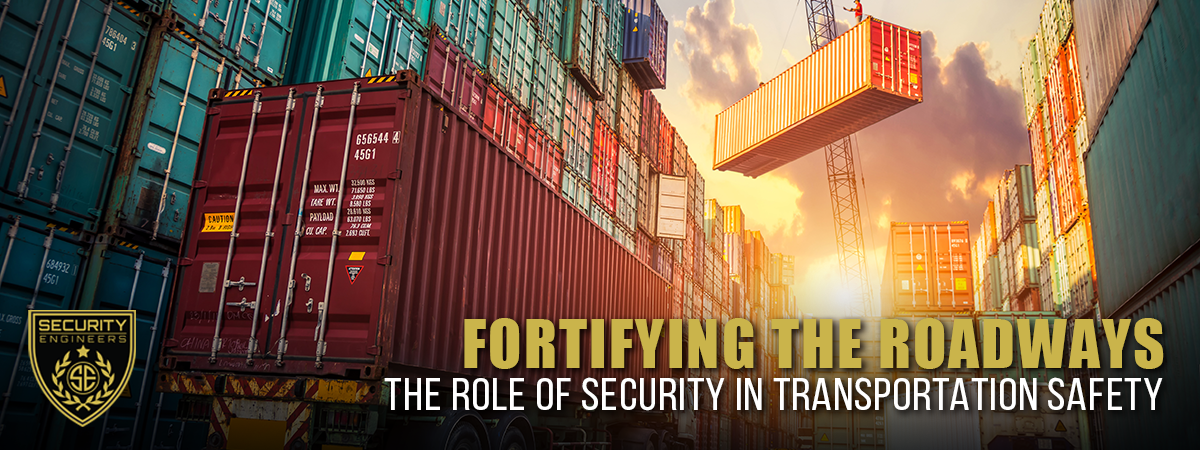
Fortifying the Roadways: The Role of Security in Transportation Safety
Introduction:
The transportation industry is the lifeblood of our modern society, enabling the seamless movement of people and goods. With the integration of advanced technologies, the need for robust security measures has never been more critical. Security Engineers, equipped with a diverse toolkit including Security Officers, CCTV, Remote Monitoring, Mobile Surveillance Units, Gunshot Detection, and Access Control, play a pivotal role in ensuring the safety and resilience of the transportation infrastructure. In this blog, we delve into the multifaceted approach Security Engineers takes to safeguard the transportation industry.
The Evolving Threat Landscape:
As transportation systems become more interconnected and reliant on sophisticated technologies, they also become susceptible to a myriad of threats. Ranging from cyber-attacks targeting critical infrastructure to physical security risks like unauthorized access and incidents of violence, the challenges are diverse and complex. Security Engineers is at the forefront of mitigating these risks, employing a comprehensive strategy to safeguard the industry.
Key Components of Transportation Security:
- Security Officers: Trained Security Officers serve as the first line of defense, providing a physical presence to deter criminal activities and ensuring the safety of passengers and assets. Security Engineers collaborates with security personnel to develop and implement protocols for threat identification and response.
- CCTV and Remote Monitoring: Closed-Circuit Television (CCTV) systems and Remote Monitoring enable real-time surveillance of transportation facilities. Security Engineers designs and deploys these systems strategically, enhancing visibility and allowing for swift response to potential security incidents.
- Mobile Surveillance Units: In areas where fixed surveillance is challenging, Mobile Surveillance Units prove invaluable. These units, equipped with advanced technology, can be deployed dynamically to address security concerns across the transportation network.
- Gunshot Detection: Gunshot Detection technology provides an additional layer of security by swiftly identifying and locating potential gunfire incidents. Integrated with surveillance systems, this technology aids security personnel in responding promptly to threats, enhancing passenger and employee safety.
- Access Control: Access Control measures, such as biometric identification and smart card systems, ensure that only authorized personnel have entry to sensitive areas. Security Engineers designs and implements these systems to prevent unauthorized access and enhance overall facility security.
Collaboration and Integration:
The effectiveness of security measures in the transportation industry lies in their seamless integration. Security engineers work closely with transportation authorities, law enforcement, and other stakeholders to create a comprehensive security ecosystem. Regular drills, training programs, and continuous improvement initiatives ensure that security protocols remain adaptive and resilient against evolving threats.
Conclusion:
In the dynamic landscape of the transportation industry, Security Engineers serves as guardians, employing a diverse set of tools and strategies to help keep our roads and infrastructure secure. By combining physical security measures with advanced technologies like CCTV, Remote Monitoring, Mobile Surveillance Units, Gunshot Detection, and Access Control, these professionals create a formidable defense against a spectrum of threats. The collaborative efforts of Security Engineers, their security professionals, and stakeholders are essential in fostering a safe and reliable transportation network that can withstand the challenges of the modern world. As we navigate the future, the commitment to innovation and vigilance in transportation security remains paramount, ensuring that our journeys are not only efficient but also secure.
To learn more about how Security Engineers can help safeguard the transportation industry, please fill out the form below, call us at 205.251.0566 or email us at [email protected].